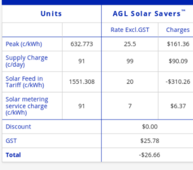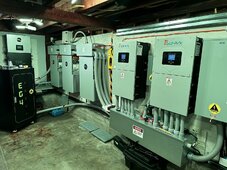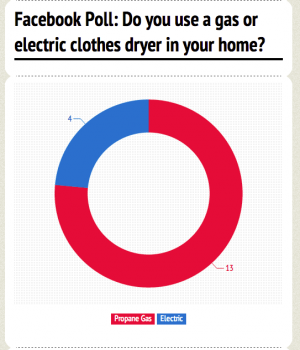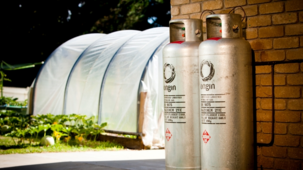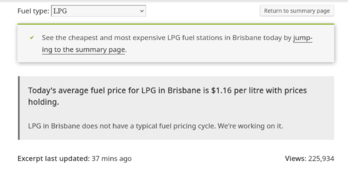Symbioquine
Solar Enthusiast
- Joined
- Jul 6, 2021
- Messages
- 428
You need to plan for the replacement cost of your critical hardware anyway and you'll learn a lot by living with a system for a while. So if your budget is $60K because that's what it would cost to get grid power, I'd argue for spending less than half that up-front on your electricity/energy system. The rest you save (somehow) for future expansion and hardware replacement.
We don't know enough about your financials to say what the best way to put that money aside is, but some examples might be;
A few other points;
We don't know enough about your financials to say what the best way to put that money aside is, but some examples might be;
- If you're going to have future income and you have existing high interest debt, pay some of it off.
- If you're already betting on the stock market doing reasonably, maybe put it into the S&P500.
A few other points;
- Short term, you can maybe swing a huge house and off-grid system such that you rarely have to think about energy use, but I think being a bit more frugal and energy conscious up-front will make the long-term much more viable (and pleasant) - leaving you more flexibility to grow and adapt as you learn. This does mean your whole family needs to be really on-board though. To paraphrase what someone earlier said, building something completely new from scratch is not for the feint of heart.
- There is a whole industry around energy efficient homes, at the very least get advice from someone professionally. You'll probably end up with thicker walls, more attic insulation, etc. than you imagined.
- Consider at least designing in an area near the house where a ground-source heating/cooling loop could be buried or maybe get this done as part of your site-leveling/foundation-work if the spacing around your building site is going to be tight. Infrastructure like that - and things like up-sized conduit very rarely go bad and can save a ton of money in the long run if you do the work at auspicious times in the overall project.
- Try and make the house part of your electrical system as conventional as possible with the only unusual bit being how power gets to the main breaker panel.
- Consider building at least a minimal backup catchment water system. Wells are risky business. They're expensive, go dry, get contaminated, have failed pumps, etc. Every inch of rainfall on a 2500sqft house is around 1500 gallons and you already have to do most of the work to catch it in order to protect the house. You might as well have a few tanks and a strategy to get/keep it clean.



